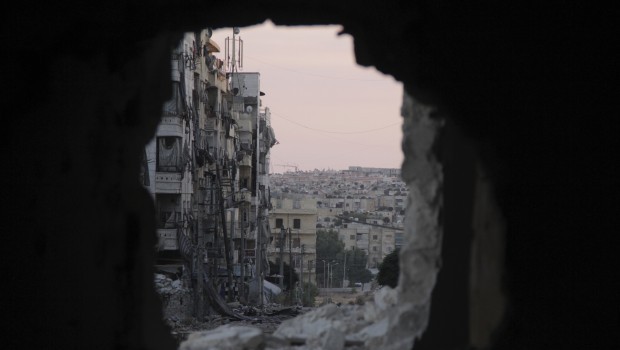Who would have thought during Assad’s glory days three years ago that Syria would be ruined, that 100,000 people would have died violently and that two million would be living in tents in other countries? In the furor surrounding US attempts to intervene militarily in Syria these past few weeks, we also took a close interest in the behavior of the three countries that support the regime in Damascus: Russia, China and Iran. Russia issued one of two vetoes of a UN resolution that would have authorized military intervention in Syria and has criticized the idea of an intervention at every opportunity. China, which issued the second veto of the draft in the UN Security Council, is generally silent, following Russia’s lead.
But what about Iran? Turkey received an interesting proposition from Iran a few days ago. Iran’s ambassador in Ankara suggested the following collaboration with Turkey on behalf of his country: “Let us stop the Westerners when it comes to Syria and do something ourselves!” Turkey has long been known to be in close contact with Iran on the subjects of Syria and Egypt, but such a proposition of concrete unity from Iran is most unusual, especially when there are very serious differences between Iran and Turkey over Syria.
Ambassador Bigdeli said that the use of chemical weapons was a crime against humanity, no matter who perpetrated it. In one sense, this gave the impression of Iran taking a step back with regard to Assad. The proposed solidarity with Turkey confirmed this. What Bigdeli was essentially saying was, “We Muslims must repair the damage in the Islamic world, not the West.”
The Iranian ambassador was quite right. It has become a habit to blame the West for problems in the Islamic world, but then to look to the West for a solution. This is unjust in two respects: First, it is true that some Westerners benefit from problems in the Middle East, but sectarian clashes—Shi’ite–Sunni clashes—are an unpleasant tradition among Muslims, not Westerners. Second, it is pitiful to both blame the West and to look to it for a solution.
It was right and proper for the US to go into action. In one sense, it prevented other countries from keeping silent. I have always supported the presence of the US in the Middle East as a teacher of democracy, but the US intervention in Syria will in all probability take place with the same methods used unsuccessfully in the past. Although Obama declared that the US “would not put boots on the ground,” such a method will inevitably cause further bloodshed. Moreover, US interventions in the Islamic world have always incited hatred toward that country on the part of some parts of society, and hatred of the US in the Islamic world inevitably triggers Islamophobia in the West. This vicious circle has been going on for the last 20 years.
A bloody intervention will also keep feelings of revenge alive. The Assad regime may fall in such an intervention, but the radicals will still be there, and they will seek revenge for the thousands of people they have lost. That vengeance will produce more images of slaughter, just like we are now seeing in Iraq every week.
Enough blood has been shed in Syria. An intervention without bloodshed is perfectly possible. If Iran is sincere in its call for unity, then Islamic countries can do this.
Do you think Assad or the radical groups could hold out in the face of such a powerful army representing a union of Muslim countries? Could an Assad who has lost half his troops and tanks, and who is left with only six of his 27 air bases resist? Of course not. Such a deterrent union could ensure the immediate fall of the regime in Syria and the withdrawal of the radicals. The new Syrian government must also be determined by this union. It would, of course, be good for there to be US and Western support behind the scenes during this process.
Rest assured that such an operation, in which the West is not directly involved and which includes Iran and Turkey, will not trouble Russia at all. Russia will not oppose a regime change in Syria, its ally of 50 years, so long as it does not fall into the hands of the West or the radicals.
If Iran, which has rather isolated itself in the Islamic world and in the Middle East, wants to polish its image and come to a genuine solution, this is their golden opportunity. This is the most accurate, rational and bloodless solution. The only question here is whether Iran is ready for an alliance of the good. If it is, we can win two countries over at once: Syria and Iran.

Trackbacks/Pingbacks